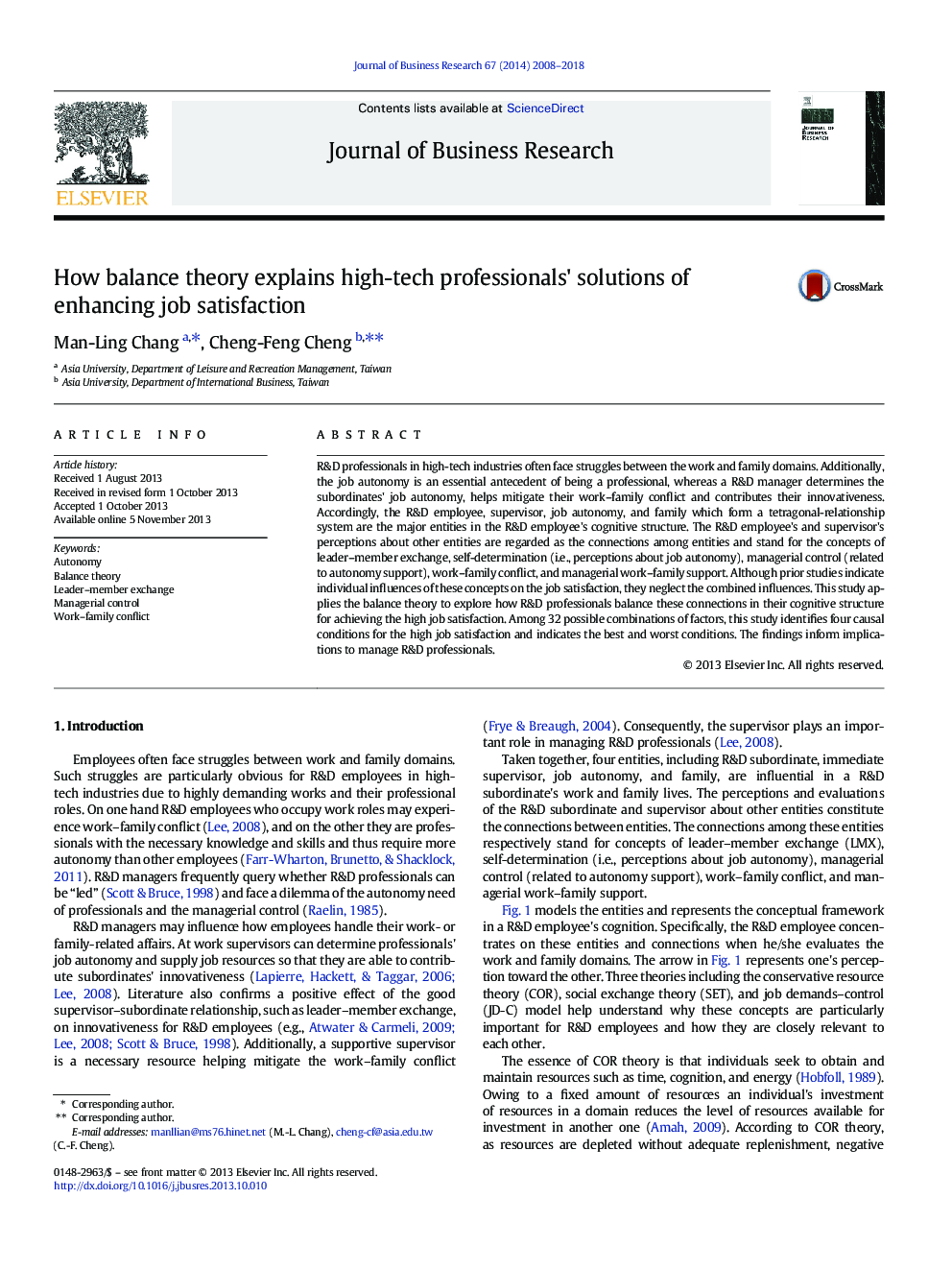| Article ID | Journal | Published Year | Pages | File Type |
|---|---|---|---|---|
| 1017421 | Journal of Business Research | 2008 | 11 Pages |
R&D professionals in high-tech industries often face struggles between the work and family domains. Additionally, the job autonomy is an essential antecedent of being a professional, whereas a R&D manager determines the subordinates' job autonomy, helps mitigate their work–family conflict and contributes their innovativeness. Accordingly, the R&D employee, supervisor, job autonomy, and family which form a tetragonal-relationship system are the major entities in the R&D employee's cognitive structure. The R&D employee's and supervisor's perceptions about other entities are regarded as the connections among entities and stand for the concepts of leader–member exchange, self-determination (i.e., perceptions about job autonomy), managerial control (related to autonomy support), work–family conflict, and managerial work–family support. Although prior studies indicate individual influences of these concepts on the job satisfaction, they neglect the combined influences. This study applies the balance theory to explore how R&D professionals balance these connections in their cognitive structure for achieving the high job satisfaction. Among 32 possible combinations of factors, this study identifies four causal conditions for the high job satisfaction and indicates the best and worst conditions. The findings inform implications to manage R&D professionals.
